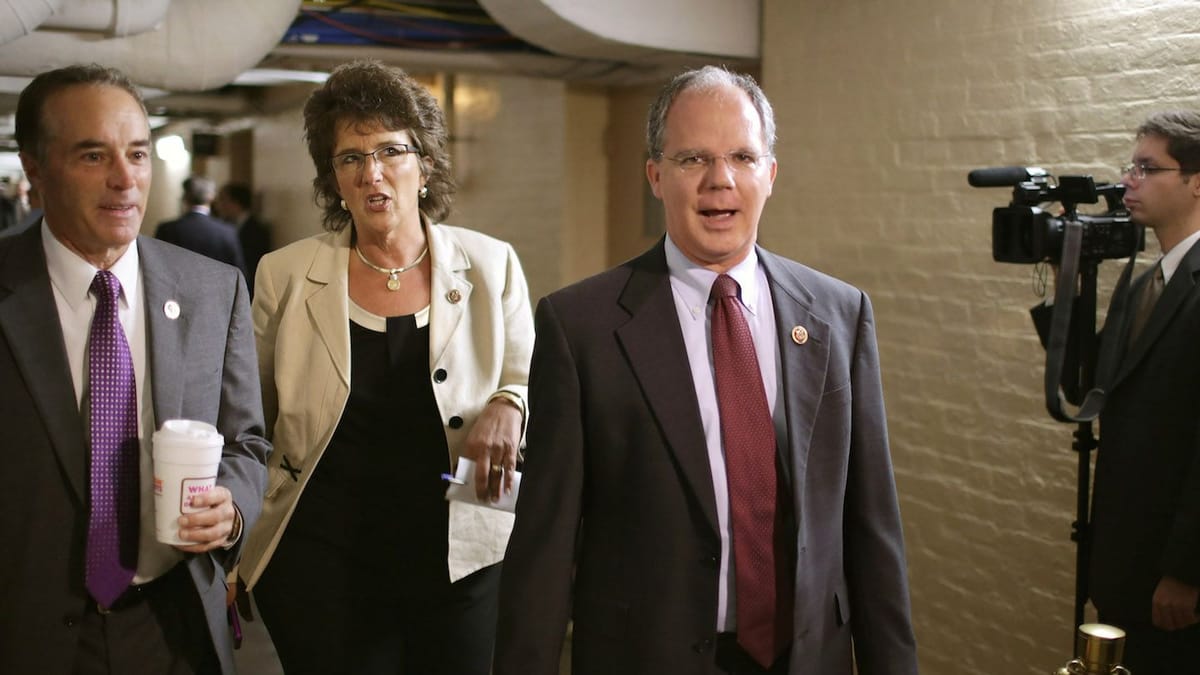The next chair of the House Committee on Energy and Commerce was the top recipient of campaign cash in Congress from the pharmaceuticals and health products industry this election cycle.
Rep. Brett Guthrie (R-Ky.) secured the chair of the E&C committee, which has vast oversight over the health sector, Medicare and Medicaid, and prescription drug safety, this month by winning the nod from the House Republican Steering Committee. The committee’s chair went up for grabs when Rep. Cathy McMorris Rodgers (R-Wash.) announced her retirement in February.
Guthrie has received over $1.8 million from the pharmaceuticals and health products industry over his career, according to OpenSecrets—more than any other currently-serving Republican in the House. The haul is second all-time among GOP House members only to former Speaker Kevin McCarthy, who had over $2.2 million.
This election cycle, Guthrie was the number one recipient of donations from the pharmaceuticals and health products industry among all congressional incumbents, outpacing even Senate candidates Bob Casey and Jon Tester. Guthrie received $507,000 from the industry during the 2024 cycle.
The industry, as calculated by OpenSecrets, includes the employees and PACs of Pfizer, AbbVie, Johnson & Johnson, and other drugmakers, as well as companies like medical device maker Abbott Labs. It is perennially one of the top spenders on lobbying and campaign contributions in D.C.
“Energy and Commerce is one of the most powerful committees in Congress impacting drug pricing policy,” said Steve Knievel, access to medicines advocate at the nonprofit Public Citizen. “As its Chair, Rep. Guthrie will have the power to advance proposals to repeal or gut Medicare drug price negotiations.”
Guthrie is ready to change the historic drug pricing reforms that became law in the Inflation Reduction Act (IRA): earlier this year, he introduced H.R. 7174, legislation that would extend the period of exemption from Medicare drug price negotiations for small-molecule drugs to match the exemption period that was given to large-molecule biologics by the IRA. The bill is frequently mentioned in lobbying disclosures by trade association PhRMA, as well as drugmakers like Pfizer and Merck.
After the November elections, pharma lobbyists told Reuters that they are seeking to “delay the timeline under which medications become eligible for price negotiations by four years for small molecule drugs,” altering the IRA’s drug pricing provisions. The lobbyists expect that legislative changes will occur through the budget reconciliation process in the Republican-controlled Congress, needing only a majority of Senate votes to pass.
The eighth-term Guthrie, who currently chairs the Subcommittee on Health, was also the top recipient among all House members during the 2024 cycle from the health services industry ($221,000), which is defined by OpenSecrets as including companies like Blue Cross Blue Shield and UnitedHealth. It was a step up for him, after being the industry’s second-highest recipient during the 2022 midterms cycle.
Guthrie was also the top recipient among all members in Congress from two other related industries in OpenSecrets’ categorization this cycle: the medical devices and suppliers industry ($138,000), which in addition to Abbott Laboratories includes donors like technology and device company Medtronic; and pharmaceutical manufacturing ($177,000), which in addition to Pfizer includes groups like PhRMA.













